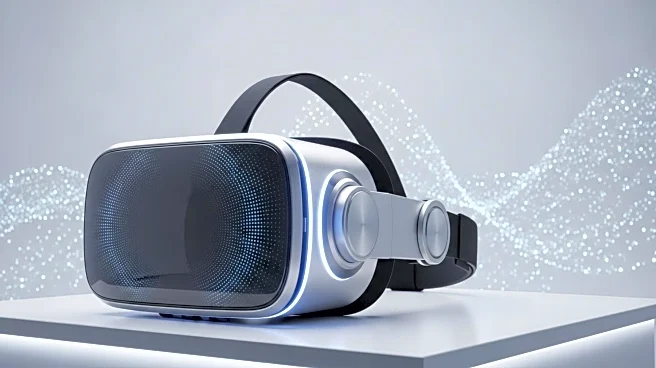What's Happening?
Revolve Group Inc. has partnered with Zelig, an AI-powered fashion platform, to launch 'Build a Look,' a new interactive feature on its website. This tool allows shoppers to mix and match items from various brands to create personalized outfits, which are displayed on digital models. The feature includes a 'digital closet' that stores items and outfits, generating data on shopper preferences to enhance personalization. Zelig's technology uses advanced AI and computer vision to render garments on avatars, showcasing fabric textures and fit on models of different sizes.
Why It's Important?
The introduction of 'Build a Look' represents a significant advancement in e-commerce, particularly in the fashion industry. By leveraging AI technology, Revolve aims to improve customer engagement, increase sales, and reduce product returns. This innovation caters to the growing demand for personalized shopping experiences, especially among Millennial and Gen Z consumers. The ability to visualize outfits and receive tailored recommendations enhances the shopping experience, potentially boosting consumer loyalty and driving revenue growth for Revolve.
What's Next?
Revolve plans to officially debut 'Build a Look' next week, following successful beta testing. The company will continue to refine the technology, aiming to further personalize the shopping experience and expand its use across other e-commerce platforms. As Zelig's technology evolves, it may attract interest from other retailers seeking to enhance their digital offerings. The ongoing development of AI-driven shopping tools could lead to broader adoption in the industry, transforming how consumers interact with fashion brands online.
Beyond the Headlines
The use of AI in fashion retail raises important considerations regarding data privacy and consumer trust. As retailers collect more detailed information on shopper preferences, they must ensure robust data protection measures are in place. Additionally, the integration of AI technology in fashion could influence design trends, as brands gain insights into consumer tastes and preferences. This shift towards data-driven fashion may also impact the role of traditional stylists and designers, as technology plays a larger role in shaping consumer experiences.









